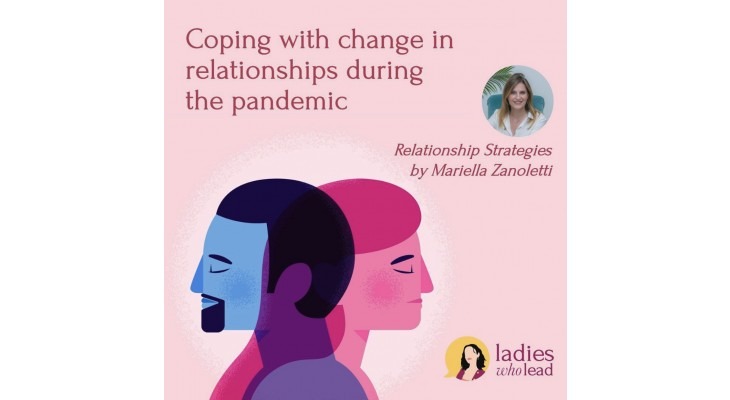

Initially, the pandemic gave people the opportunity to reconnect in a way that maybe previously they were only able to do it on vacation. However with time, it began to take its toll on intimate relationships directly attributed to lockdown. According to my clients, a major reason could be pandemic-induces stress since the lockdown created and still creates an atmosphere of uncertainty and fear. Some are facing unprecedented health-related anxiety, financial insecurity and other significant life changes.
The lockdown had changed our routines and people are now spending too much time with another person. Now we are more absorbed by work and household conflicts, relational issues have surfaced, there is less privacy in the confined space of our homes and there is no social distractions or occasions to escape in hobbies resulting in tension among spouses.
Separated from our pre-pandemic social and professional lives, we might begin to lose our sense of self, which can affect our intimate relationships. Women especially have had to push careers to the side during the pandemic, as household chores, childcare and home-schooling demands have increased . If we don’t know who we are, all of a sudden, it can feel like there’s nothing to bring into our relationships.
Here are some strategies I suggest to my couple clients.
During this crisis, some couples have been confronted with the emptiness, emotional distance and lack of connection in their relationships that might have been masked for many years.
COVID-19 should be an opportunity to spend time thinking how you want your relationship to looks like post pandemic.
Take care of yourself
First, be kind to yourself. Allow yourself time to adjust and settle. During times of stress, everyone reacts differently, be compassionate to yourself. Often people ask me how to do that. I always advice to think of the ways they show love to others and start behaving the some way with themselves. Remember, self-care has never been more important than it is now.
Practice mindfulness
Mindfulness can help create intimacy in couples and improve communication. It’s also about acknowledging that your partner is doing the best they can with what they have at the time and operating from a place of good intent. Remember you are also doing the best you can given the present situation.
Connection
Instead of complaining about your partner behavior, it might be more useful to focus on revaluing the importance of connection and intimacy. Remember, physical touch is also a way of reducing stress.
Positive mindset
Moments of crisis provide opportunities to change, reconnect, introduce a new perspective, revalue the partner and revive relational dynamics that have been there before. Having an healthy relationship is about making efforts, planning and creating opportunities for connection, ask for what you need, communicate more, thereby challenging the myth of ‘ if my spouse loves me I should not tell what I need’. Remember, people cannot read minds, even if they love you!
Sexual connection
Instead of putting expectation on super huge moments, take that interaction down to something subtle throughout the whole day. Maybe you’re just rubbing backs or holding hands or sitting next to each other the whole day. Remember, It’s a continued physical connection instead of putting a lot of emphasis on bigger moments.
Create space
In addition to increasing the feeling of interconnectedness, it is also important to leave each other some space and keep a good balance between togetherness and separateness. Partners can start engaging in new activities, both individually and as a couple, in order to introduce an element of novelty. Remember, It’s important to see your partner through a new gaze, which could eventually increase connection and attractiveness.

Mariella Zanoletti is a qualified psychotherapist and counsellor with specialist training and experience in the field of Systemic Family and couple Therapy, Integrative Counselling and Mediation. She has 15 years experience in the field of counselling and human relations. Mariella has helped individuals, young people, couples and families, employees and managers with a variety of concerns ranging from stress related issues, anxiety, self-confidence, work-related matters, marriage and relationship, parenting issues, etc.

























